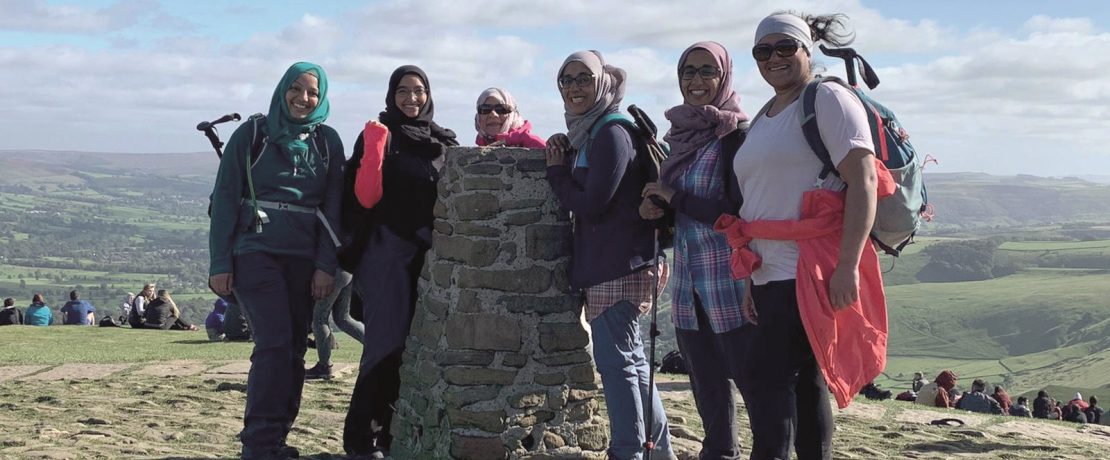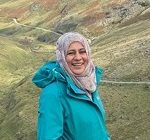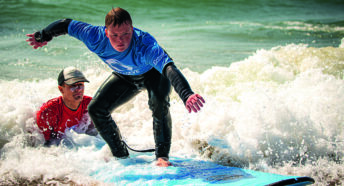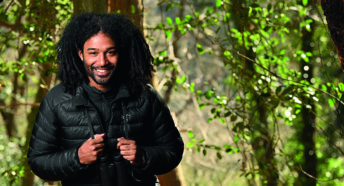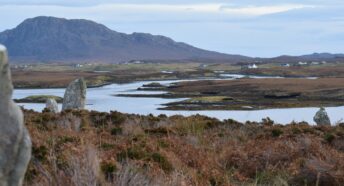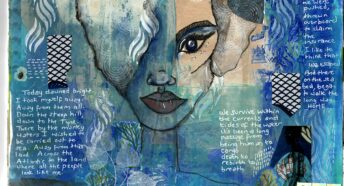Breaking down barriers to the great outdoors
Optician and mum-of-three Aisha Nazir Iqbal is a co-founder of the Manchester Nomads, a 15-strong Muslim women’s walking group. She explains how time spent outdoors has helped her to manage stress and practise mindfulness.
Around 12 years ago, my friend Misba joined a walking group. As a city-dweller, I couldn’t see the attraction. Why would someone want to spend all day ambling about in the countryside when they could do a 45-minute gym workout to sort out their fitness and wellbeing?
Fast forward to early 2020, and I’m part of a group of women raising funds for a faith-based holistic centre, the Olive Mount.
‘We thought, ‘We’ll climb Snowdon!”
When the pandemic hit, we asked ourselves, ‘How can we raise funds during lockdown?’ We thought, ‘We’ll climb Snowdon!’.
But we weren’t all hikers, or expert map-readers, and we didn’t all have the necessary outdoor kit. We also knew we’d have to fit our training schedule around other commitments: caring for young children or elderly parents, demanding jobs and community volunteering.
Fortunately, we could call on Misba’s expertise (she’s climbed Kilimanjaro and trekked to the North Pole), and we were joined by two more experienced hikers, Sajida and Fazila. Having been on the same journey, they were excited for us and could advise us on training and routes.
They knew how to nurture us and push us to build our strength and confidence. They could also answer our endless questions – Can I hike in trainers? Do I need special socks? When you’re a beginner, outdoor stores can feel intimidating and searching Google for kit advice results in information overload. Personal contact with experienced women hikers gave us easy access to all the information we needed.
We set up our walking group, Manchester Nomads, as a safe place for women to come together and not feel judged, whatever their level of faith or fitness. Going into an established hiking group would have been daunting. Would they have asked me which walk times would suit my family commitments, or whether I needed to take breaks for prayer?
In our group, these matters are addressed automatically because we’re aware of the cultural sensitivities and understand each other’s lifestyles. For example, we often set out on walks at sunrise so we can be home with our families by lunchtime.
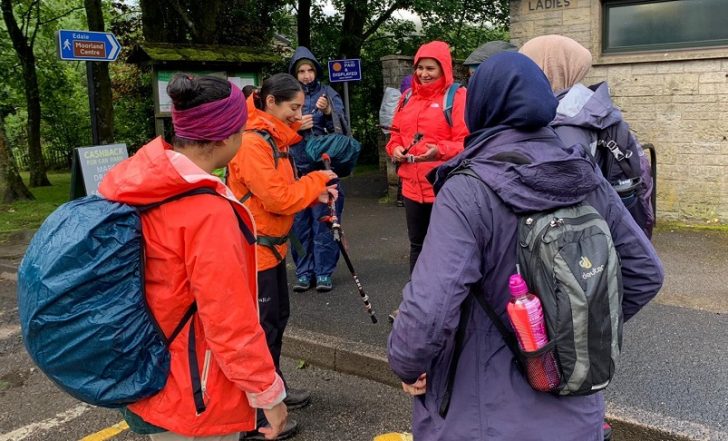
I’ve never encountered direct racism in the countryside. On the contrary, people we meet while walking are incredibly friendly.
Sometimes I’m aware of microaggressions, such as being looked at or ignored. That’s one reason why we wanted to get a group of like-minded women together – nobody thinks I’m unusual for wearing a headscarf.
Faith in the countryside
In Islam, God has appointed humans as viceroys of the earth to take care of the natural environment and all living things in it. Experiencing the splendour of natural surroundings, and actively playing a role in their conservation, is part of our culture and integral to our spiritual beliefs.
But as a young mum from a South Asian background, I don’t see people like me in images of the countryside.
If I see a country magazine or an advert for outdoor gear, my first thought is that the countryside looks beautiful. My next thought is that it looks like it’s for white people, wealthy people and older people.
Little changes make a big difference. When National Trust literature shows diverse families with young children, I know I’m welcome there with my kids.
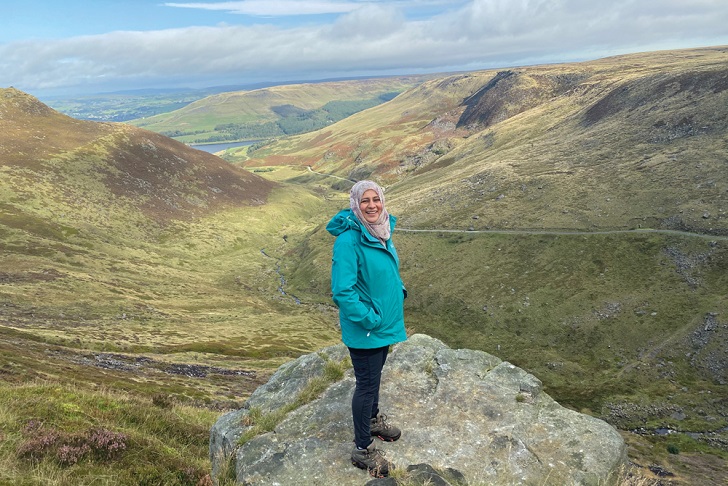
‘What’s stopping people coming? How can we make them feel welcome?’
The people who run our national parks and wild spaces need to understand the communities they want to attract and ask, ‘What’s stopping people coming? How can we make them feel welcome?’
I’d like to see them raising awareness in urban areas – in supermarkets, community centres, places of worship. And they especially need to raise awareness in schools and nurseries, so that from the youngest age, children from all cultures and backgrounds feel that they belong in the countryside.
Socioeconomic factors are another consideration. I love walking in Dovedale, but it takes me an hour to get there from my home in Cheadle. I’m privileged to live in a two-car household, but many families don’t even have one car, and public transport to the countryside can be slow, irregular and expensive.
In my view, getting people from the city into the countryside means overcoming a combination of social, racial and cultural barriers. It’s about awareness, accessibility and making people feel that connection. Once you get somebody addicted to the countryside they’re never going to want to go back to the gym!

‘It totally changes you’
Immersing yourself in natural landscapes allows profound psychological healing to take place – many studies have shown that. For me, spending time in nature has had a hugely positive impact, helping me to manage stress and practice mindfulness. I’ve also seen a significant improvement in my physical health since I started walking with Manchester Nomads.
But what I’ve enjoyed most is the company. As a group, we’ve been witness to one another’s journeys, seen one another’s strengths and weaknesses, shared our vulnerabilities. Being out in the open, finding out how much you can push yourself, learning how resilient you are, it totally changes you.
Having achieved our aim of climbing Snowdon in August, we walked the Peak District’s Great Ridge, which was beautiful, and Kinder Scout was amazing. Next year, if we can, we hope to do Ben Nevis.
The countryside has done so much for me, and I’m bringing that message back into my community. Before this lockdown, I took some ladies to Delamere Forest for the first time. It was wonderful sharing my experiences, helping others and being their window to such incredible landscapes.
Just as Misba, Sajida and Fazila made walking accessible for me, I’m now breaking down those barriers for others.
A version of this article was originally published in CPRE’s award-winning magazine, Countryside Voices. You’ll have Countryside Voices sent to your door three times a year, as well as access to other benefits including discounts on attraction visits and countryside kit from major high street stores when you join as a CPRE member. Join us now.
